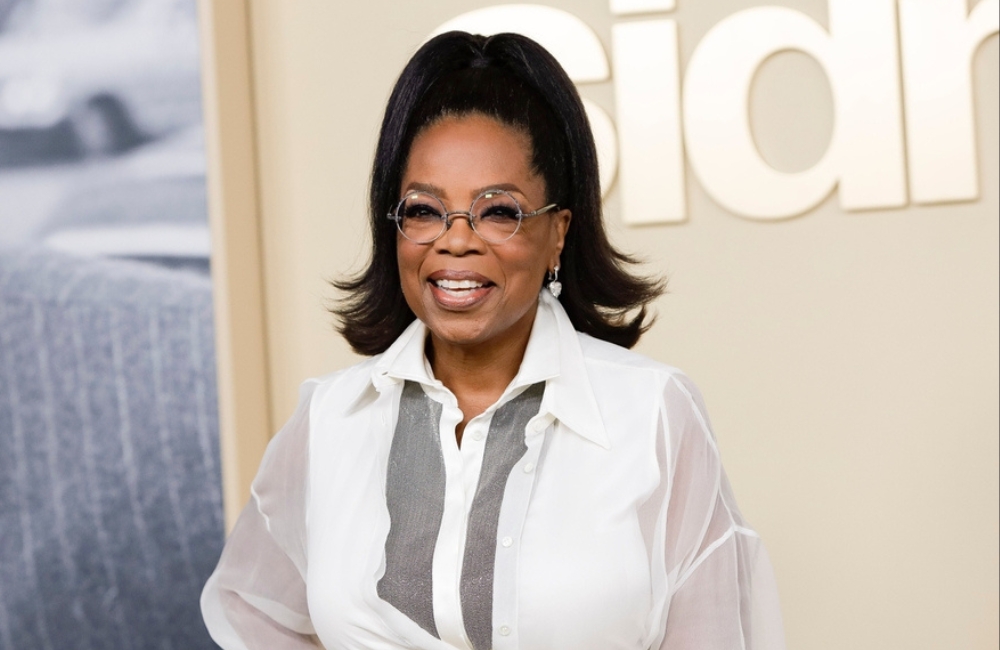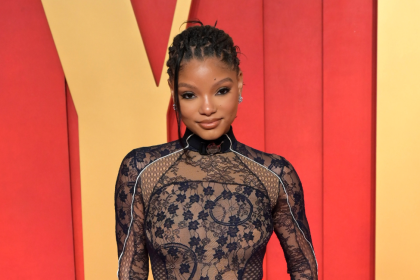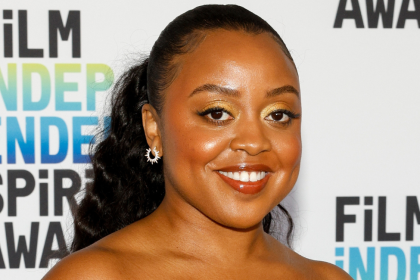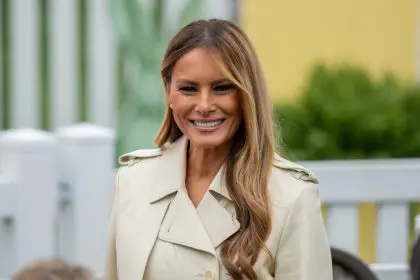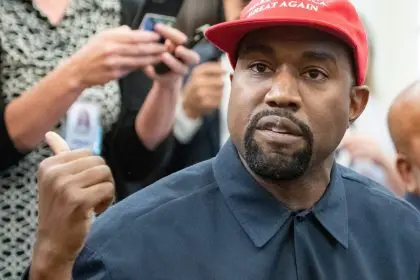Oprah Winfrey generated significant audience attention during the 2025 Tony Awards ceremony when her presentation comments were widely interpreted as referencing recent controversial statements made by Broadway veteran Patti LuPone about fellow performers. The incident occurred during Oprah’s presentation of the Best Performance by a Leading Actress in a Musical category, where her remarks about theater community discussions sparked immediate audience reactions and social media commentary.
The apparent reference occurred within the context of ongoing tensions in the Broadway community following LuPone’s controversial interview statements about established performers Kecia Lewis and Audra McDonald. These tensions had escalated to the point where hundreds of Broadway community members signed an open letter condemning the remarks and requesting LuPone’s disinvitation from the Tony Awards ceremony.
Oprah’s presentation moment highlighted the intersection of entertainment industry politics and major awards ceremonies, demonstrating how ongoing professional controversies can influence even formal recognition events. The incident reflects broader discussions within the theater community about professional respect, veteran status recognition, and appropriate public discourse among established performers.
Awards ceremony comments generate immediate interpretation
During her presentation of the Leading Actress in a Musical category at Radio City Music Hall, Oprah made remarks about the theater season that audience members immediately connected to recent Broadway community tensions. Her comments about theater fans engaging in lively conversations prompted visible audience reactions and knowing looks that suggested widespread awareness of the underlying controversy.
The presentation moment included deliberate pauses and facial expressions that audience members interpreted as intentional references to recent public discussions within the Broadway community. Oprah’s delivery style and timing appeared calculated to acknowledge the controversial statements without directly naming individuals or specific incidents.
Social media users quickly identified the comments as apparent references to LuPone’s interview statements, with many viewers praising Oprah’s indirect but pointed approach to addressing the controversy. The immediate online reaction demonstrated how awards ceremony moments can become vehicles for commentary on industry tensions and conflicts.
The incident illustrated how experienced presenters can use subtle communication techniques to address controversial topics during formal events while maintaining the ceremony’s professional tone and avoiding direct confrontation or explicit criticism of specific individuals.
Controversial interview statements created Broadway community tensions
The controversy originated from LuPone’s interview with The New Yorker publication, where she made disparaging comments about Lewis’s veteran status and expressed negative sentiments about McDonald despite their previous professional relationship. The interview included particularly notable moments where LuPone refused to comment positively about McDonald’s current performance in Gypsy, a role LuPone had previously won a Tony Award for performing.
LuPone’s statements about Lewis challenged the performer’s right to identify as a Broadway veteran, creating immediate backlash within a community that values experience and professional recognition. The comments were perceived as unnecessarily dismissive and contrary to the collaborative spirit typically celebrated within theater communities.
The remarks about McDonald were particularly controversial given both performers’ established reputations and McDonald’s status as a six-time Tony Award winner. LuPone’s refusal to acknowledge McDonald as a friend and her dismissive response to questions about McDonald’s current performance generated widespread criticism from industry professionals.
The interview’s publication timing, occurring during Tony Awards season when McDonald was nominated for her Gypsy performance, amplified the controversy’s impact and created additional pressure within the Broadway community to respond to what many perceived as unprofessional public behavior.
Broadway community responds with unprecedented collective action
More than 600 members of the Broadway community signed an open letter condemning LuPone’s statements and requesting her disinvitation from the Tony Awards ceremony. This collective response represented an unusual level of unified action within an industry that typically handles disputes privately rather than through public statements.
The open letter specifically addressed what signatories characterized as demeaning and disrespectful language toward fellow professionals, emphasizing community values of mutual support and professional courtesy. The document reflected broader concerns about maintaining positive working relationships and public discourse standards within the theater industry.
The signatories included performers, directors, producers, and other theater professionals representing various career stages and backgrounds, demonstrating widespread disapproval that crossed traditional industry hierarchies and demographic divisions. This broad-based response indicated that LuPone’s comments had violated generally accepted professional conduct standards.
The community’s decision to pursue public action rather than private resolution reflected the seriousness with which industry members viewed the controversy and their desire to establish clear boundaries regarding acceptable public discourse about fellow professionals.
Target performers respond with professional dignity
Audra McDonald addressed the controversy during a television interview, expressing genuine confusion about any supposed rift with LuPone while maintaining professional dignity throughout her response. McDonald’s measured reaction contrasted sharply with the inflammatory nature of LuPone’s original statements and demonstrated the professional conduct standards that industry members typically expect.
McDonald’s response emphasized her lack of awareness regarding any personal conflict with LuPone, noting that the two performers had not interacted in approximately eleven years due to busy professional schedules rather than any deliberate avoidance. This explanation provided context for any perceived distance between the performers while avoiding escalation of the controversy.
The target performers’ professional responses to the controversy highlighted the contrast between constructive and destructive approaches to public discourse within the entertainment industry. Their dignified handling of the situation demonstrated leadership qualities that likely contributed to the community’s strong support for their positions.
McDonald’s continued focus on her current performance work rather than engaging in public disputes illustrated the professional priorities that successful long-term careers require, particularly in collaborative industries like theater where reputation and relationships significantly impact career opportunities.
Public apology attempts damage control
Following the community backlash and open letter publication, LuPone issued a public apology acknowledging the inappropriate nature of her interview statements and expressing regret for her behavior. The apology specifically referenced the open letter’s points and indicated agreement with the community’s assessment of her conduct.
LuPone’s statement characterized her interview responses as flippant and emotional rather than deliberately malicious, suggesting that the controversy resulted from poor judgment rather than intentional harm. This framing attempted to explain the statements while accepting responsibility for their impact on other professionals and the broader community.
The apology included commitments to personal conversations with the affected performers, indicating recognition that public statements required private follow-up to address relationship damage. This approach acknowledged that professional relationships require individual attention beyond public statements of regret.
The timing and content of LuPone’s apology reflected recognition that her original statements had created significant professional consequences that required immediate attention to prevent further damage to her industry relationships and reputation.
Awards ceremony reflects ongoing industry tensions
LuPone’s absence from the Tony Awards ceremony, whether voluntary or resulting from community pressure, created an unusual situation where a prominent Broadway figure was notably missing from the industry’s premier recognition event. This absence highlighted the serious nature of the controversy and its impact on normal industry social patterns.
The ceremony’s atmosphere reflected awareness of the ongoing tensions, with various moments and interactions interpreted through the lens of recent controversies. Oprah’s presentation comments represented the most direct apparent reference to the situation during the formal proceedings.
Other ceremony participants appeared careful to maintain positive, supportive messaging throughout the event, possibly in conscious contrast to the negative discourse that had characterized recent community discussions. This approach suggested industry leaders’ desire to restore positive communication patterns.
The awards ceremony served as a forum for demonstrating community values and professional standards, with various presenters and winners emphasizing themes of mutual support, collaboration, and respect that directly countered the controversial statements that had generated recent tensions.
Industry implications for professional discourse standards
The controversy and its aftermath established clear community expectations regarding public discourse about fellow professionals, particularly regarding veteran status recognition and personal relationship discussions. The strong community response indicated that certain types of public statements would not be tolerated regardless of the speaker’s industry status or achievements.
The incident demonstrated how social media and modern entertainment coverage can amplify private disputes into major industry controversies that require formal responses from professional communities. This dynamic creates additional pressure for public figures to maintain professional discourse standards in all public communications.
The resolution process illustrated effective community self-regulation mechanisms that can address inappropriate behavior without requiring external intervention or formal industry sanctions. The open letter approach provided a model for collective action that might influence future responses to similar situations.
The controversy’s impact on awards season and industry relationships highlighted the interconnected nature of professional entertainment communities where individual behavior can significantly affect collective industry culture and working relationships among numerous professionals.

